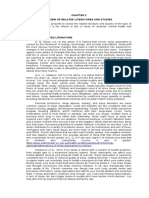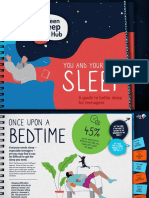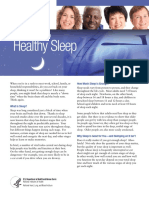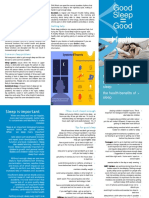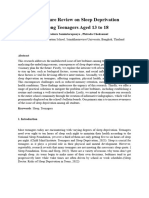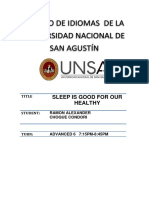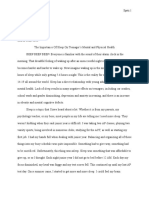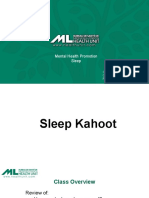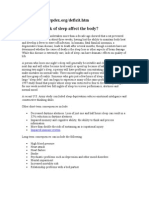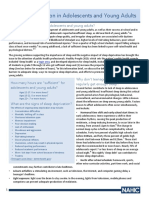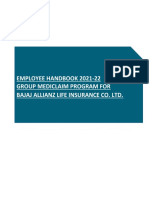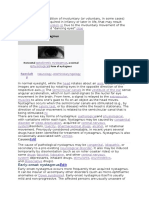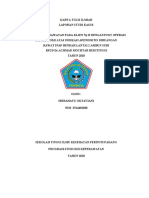0% found this document useful (0 votes)
25 views7 pagesWjce ENGLISH LANGUAGE Unit 3 Past Paper
The document contains various texts discussing the importance of sleep and its effects on health, particularly for teenagers. It highlights the consequences of both sleep deprivation and oversleeping, including mood disorders, obesity, and heart disease. Additionally, it emphasizes the negative impact of screen time on sleep quality and suggests guidelines for healthy sleep habits.
Uploaded by
fuad ahamedCopyright
© © All Rights Reserved
We take content rights seriously. If you suspect this is your content, claim it here.
Available Formats
Download as PDF, TXT or read online on Scribd
0% found this document useful (0 votes)
25 views7 pagesWjce ENGLISH LANGUAGE Unit 3 Past Paper
The document contains various texts discussing the importance of sleep and its effects on health, particularly for teenagers. It highlights the consequences of both sleep deprivation and oversleeping, including mood disorders, obesity, and heart disease. Additionally, it emphasizes the negative impact of screen time on sleep quality and suggests guidelines for healthy sleep habits.
Uploaded by
fuad ahamedCopyright
© © All Rights Reserved
We take content rights seriously. If you suspect this is your content, claim it here.
Available Formats
Download as PDF, TXT or read online on Scribd
/ 7



